Conversations made
curated by Julia Varley and Eugenio Barba
February 20, 2021
Patch Adams
Since the 70sPatch Adams is an important reference for ways of humanising healthcare, supporting and spreading the practice of humour and smiling as medicine through clowns. He started The Gesundheit! Institute, a model of free healthcare to be offered to the public. Found the Gesundheit! Institute, a free healthcare organization model to be offered to the general public.
Passion and persistence
Passion is the name of the process. “So many people give up their passion, or never join a Big Dream. They stop because the achievement of the final product is too slow. You have to feel that the passion is today, in the process – don’t tie it to a milestone. Find creativity in every act and don’t sacrifice your need to be creative.
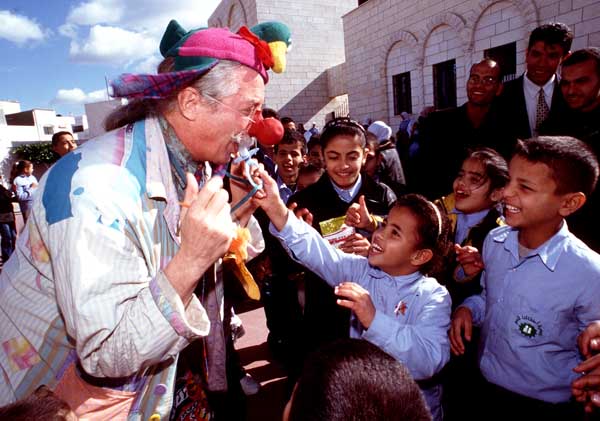
February 27, 2021
Sanguigno Geneva
Actress, clown, mime, trainer and founder of Clown One Italia Onlus in 2000. He published “Il Corpo che Ride” Xenia Editrice. He writes for “Theaters of Diversity”, in the “With roots in the wind” column.
Italo Bertolasi
For twenty years he studied Himalayan, Chinese and Japanese shamanic cultures, photographing and writing for the most important European magazines. He has written numerous books on Watsu, Yoga, Asian shamanism and massage. (www.italobertolasi.com; www.watsu.it).
The Shaman Clown
It was the irreverent fool who “cured” injustices with his jeers to power, the clown who appeared in the first theaters to make us smile, the circus clown who, wearing a white coat and a traditional red nose, returned to being one “shaman clown”, an “ambassador of peace and smiles”. The “Shaman Clown” is present in hospitals, schools, countries at war, refugee camps, and other areas of the world afflicted by humanitarian emergencies.
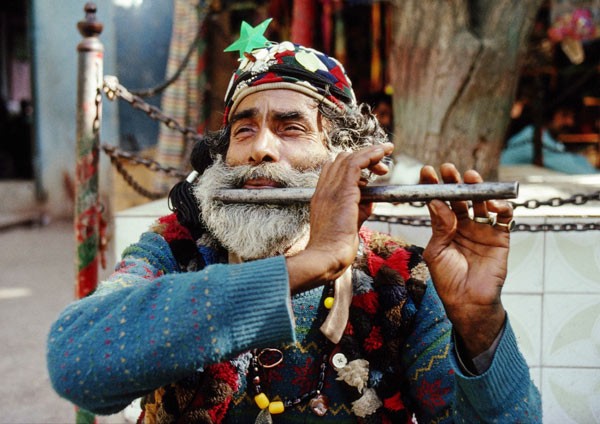
March 24, 2021
Patricia Ariza
Founding member of the Teatro la Candelaria, based in the Candelaria district of Bogotà, actress, director, poet, playwright and activist for peace and for the women’s movement.
Theater as a practice of peace
The movement for peace in Colombia is very active and Patricia Ariza is a protagonist, thanks to her prestige and her proposals for shows, great performances, festivals and poetry meetings. Patricia Ariza ‘s latest solo work, I’m not alone, is about women who rebel against a reality of disappeared and “false positives”. Patricia lived for many years threatened with death because she was part of the Union Patriotica, a left-wing party exterminated by death squads.
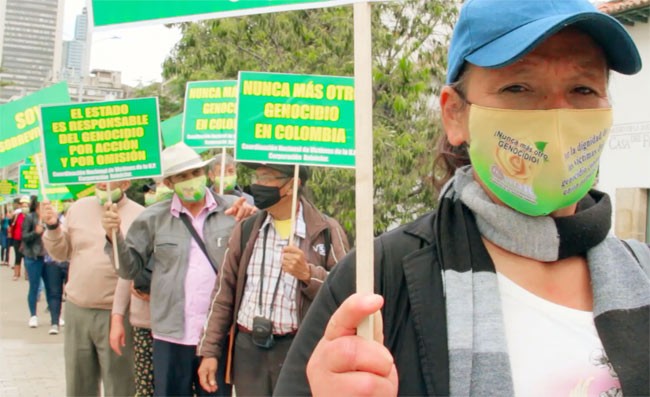
April 27, 2021
Giovanni Scotto
Associate Professor at the Department of Political and Social Sciences, University of Florence, where he teaches Conflict and Mediation Theories, Mediation and Participatory Democracy Techniques and International Conflict Transformation.
Find item. Conflict settlement techniques
One of the paradoxes of today’s society is that we live immersed in the clamor of continuous communication, where social networks have been added to television which apparently give the word to everyone. At the same time, an increasingly large part of society is unable to speak. A necessary prerequisite for every regeneration is listening: it is true for the ecological crisis, for the social one and for the inner one that many experience.
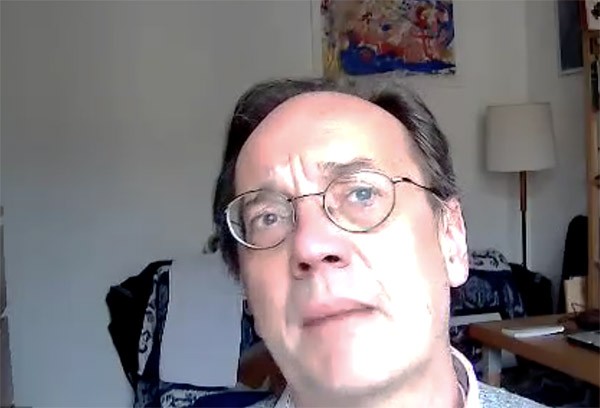
May 25, 2021
Miguel Rubio Zapata
Peruvian director, theater researcher and founding member of the Grupo Cultural Yuyachkani.
The other side of the theater.
What do we find behind the show, behind the long commitment of the rehearsals and the meeting with the spectators? The motivations of women and men, the choices of the actors, directors and all those who participate in the creative process. What are the reasons today in this time of bewilderment?
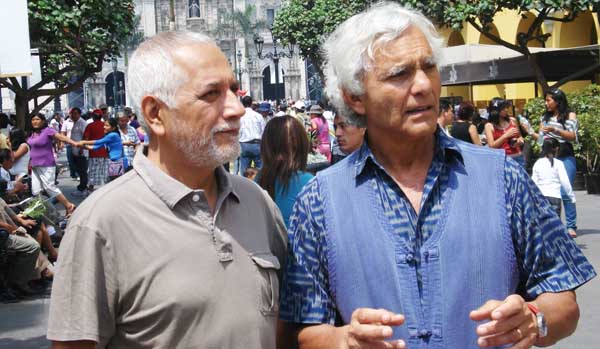
June 28, 2021
Donatella Massimilla
Playwright, director and founder of the theater company Ticvin, La Nave dei Folli and CETEC.
The Theater in closed places
Art and beauty are rediscovered within themselves and the inmates tell each other and find each other again, they face their own path and can ask themselves: are we happy with our life? Are we living what we imagined?
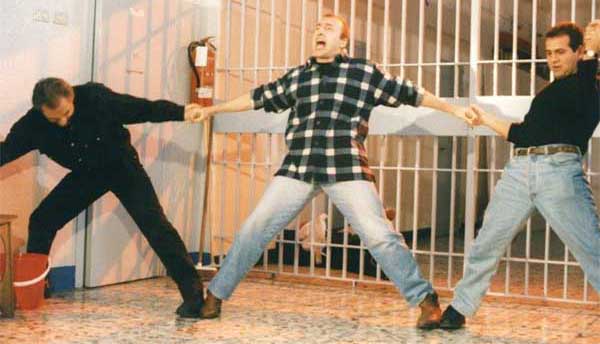
July 27, 2021
Parvathy Baul
West Bengal singer, painter and storyteller. After receiving her early childhood education in music and dance, she studied visual arts at Kala Bhavan in Shantiniketan, the university founded by Rabindranath Tagore.
From the suburbs
Parvathy Baul is dedicated to the development and oral transmission of the Baul tradition. He built an ashram in Bengal to accommodate children and students, supporting two hundred families from the neighboring village. With the Tantidhatri festival, in 2019, Parvathy Baul organized artistic workshops for the daughter of prostitutes in a Kolkata slum. Its commitment extends to all those people who live in the geographic, economic, cultural and gender peripheries.
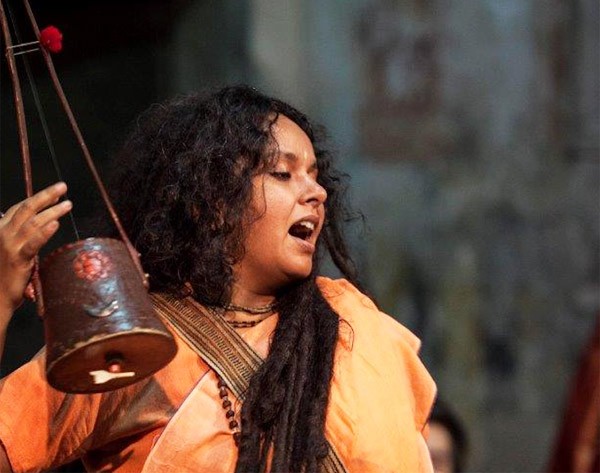
September 29, 2021
Ermanna Montanari
Founder, actress, author and set designer of the Teatro delle Albe, she conducts a personal vocal research path within the company for which she has received numerous national and international awards. He has made various music CDs together with the composer Luigi Ceccarelli, including in 2020 Faithful of Love published by Stradivarius. He has published Cellula, co-written with Enrico Pitozzi, Quodlibet, 2021.
The voice between shouts and silences
Helene Weigel ‘s mute cry in the role of Mutter Courage is famous for expressing pain and anger at injustice. The voice for an actress is the potential of all sounds that is realized sometimes in silence and sometimes in a whirling sound concert. It comes from the earth where we place our feet, crosses the body on stage and heads to the inexplicable reality that surrounds us. Beyond languages and words, it communicates vulnerability and stubbornness in intonations, songs and vibrations. The voice is a mysterious and effective vehicle for being in contact with onlookers in the remote regions of the nameless.
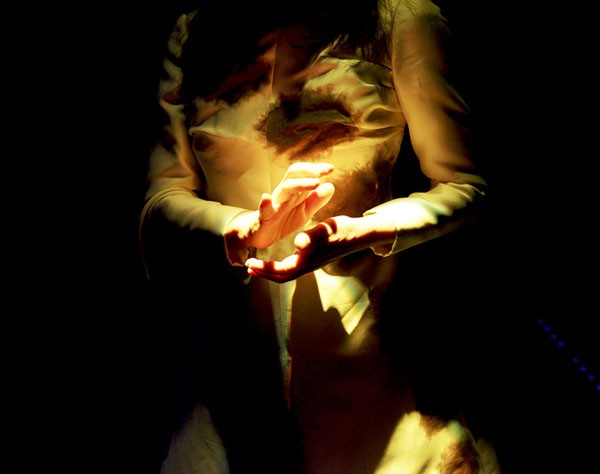
October 27, 2021
Claudia Brunetto
Professional journalist since 2012, for 16 years he has collaborated with the newspapers of the Gedi publishing group and writes articles for the Palermo edition of the newspaper “La Repubblica”. It mainly deals with social issues, schools, children, marginalization, districts at risk and migration. After graduating in Theater History, he has written for the main national newspapers in the sector and has followed the most significant realities of the contemporary scene.
Telling the invisibles
The Roma camps, the homeless, the migrants, the illegal street vendors represent a part of the world of the “invisible”, the new poor, victims of a social injustice that is difficult to counter. Together with them, thousands of volunteers work in absolute anonymity to defend human rights, integration and hospitality. Telling the invisibles is an attempt to shift our gaze to what is apparently hidden and lives on the margins. Positive stories and social redemption that can tell the other face of Palermo.
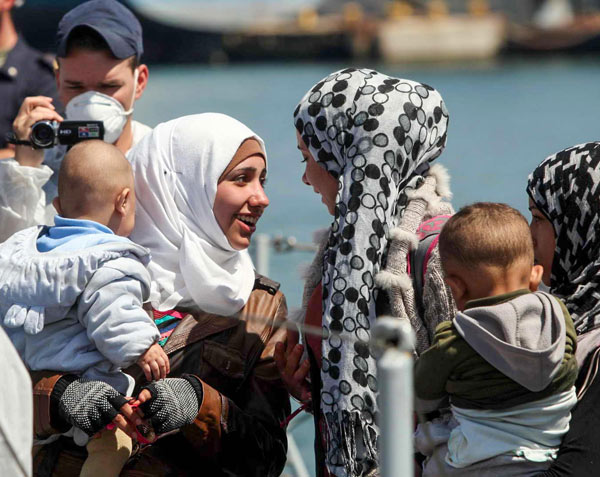
December 8, 2021
Marco Martinelli
Playwright, theater and cinema director, founder together with Ermanna Montanari of the Teatro delle Albe. His dramaturgies are published and staged in Italy and in ten other languages around the world. He has won seven Ubu awards (the Oscar of Italian theater) as a director, playwright, pedagogue.
Polyptych theater
What are the semi-secret reasons behind our theaters? What reasons push us to continue today? On a personal level, what is hidden behind the adjective “political”?
Starting from these questions, the dialogue between Eugenio Barba, founding director of Odin Teatret in Oslo (Norway) in 1964, and Marco Martinelli, director and one of the founders of the Teatro delle Albe in 1983 in Ravenna (Italy), will unfold.
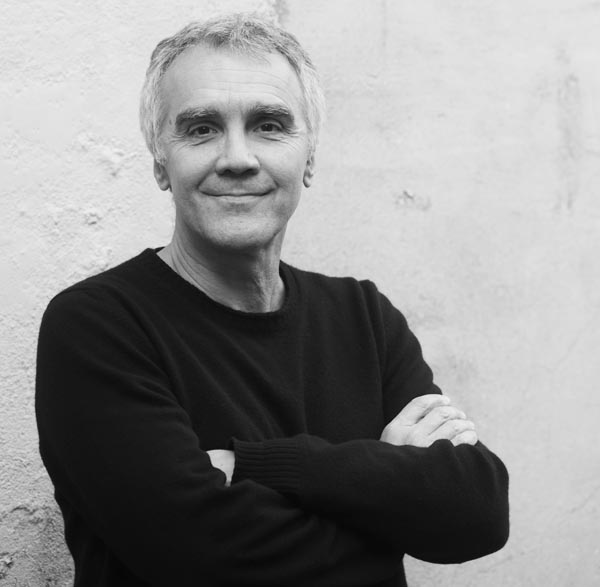
December 19, 2021
Vito Minoia
A scholar of educational theater at the University of Urbino, where he founded the Aenigma University Theater in 1990, he is President of the International University Theater Association (IUTA) and Director of the European magazine «Catarsi, Theaters of Diversity». In 2011 he founded the National Theater in Prison Coordination and in 2019 the International Network Theater in Prison (INTIP).
Theaters of diversity
“Diversity is a richness and theater can enhance it”: an intuition that has guided the research of the European magazine “Catarsi, Theaters of Diversity”, founded in 1996 at the University of Urbino by Emilio Pozzi and Vito Minoia, with the significant contribution by Claudio Meldolesi. Hence an original working hypothesis: to verify the possibility of giving ownership to forms of acting theater, once considered marginal, in the contexts of disability, prison, mental illness and more.
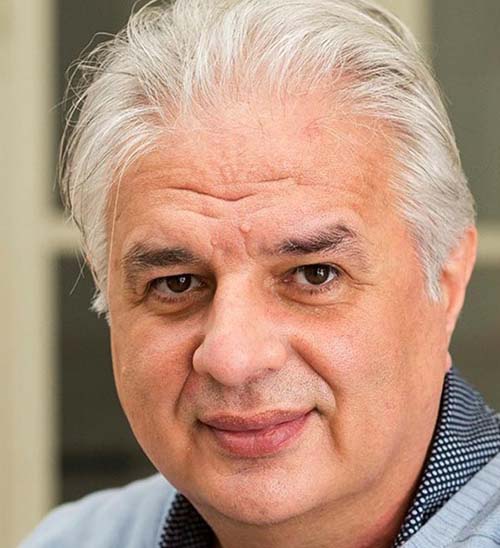
February 2, 2022
Nora Amin
Born in 1970, she is an Egyptian writer, performer, choreographer and director. In 2013 she was named best director by the Egyptian National Theater Festival. Nora has been active in independent Egyptian theater and new writing since 1993. She began her professional theater career as a member of the modern dance company at the Cairo Opera House (1993/94), and then worked as an actress in leading roles at the Hanager Arts Center until 2002. In 2000 he founded his independent theater group in Cairo, La musica. He has published two novels and four short story collections.
Dance the rebellion
One of Nora Amin’s latest claims as a feminist is to dance belly dance during her lectures at the university. Living between Germany and Egypt, writing, producing films and theater, contributing to festival programs, Nora is in contact with many contrasting and contradictory realities. During the conversation, Julia Varley will ask Nora Amin to talk about her work and life in recent years, including the production of the film, An Enemy of the People – Journey to Survival, which was shown at the 8th Transit Festival ” Beauty as a weapon – Theater, Women, Conflict ”. The film tells the journey of an independent theater company that decides to stage a provocative show that deals with themes of democracy, corrupt regimes, the domination of the majority and the manipulation of crowds. The film shows different moments and contexts of entertainment throughout the year 2013 a few steps from the violent clashes in Tahir square and tells a story about theater as a tool for survival and change; is the story of the Lamusica Independent Theater Group, of twenty men who work under the guidance of a woman: Nora Amin.
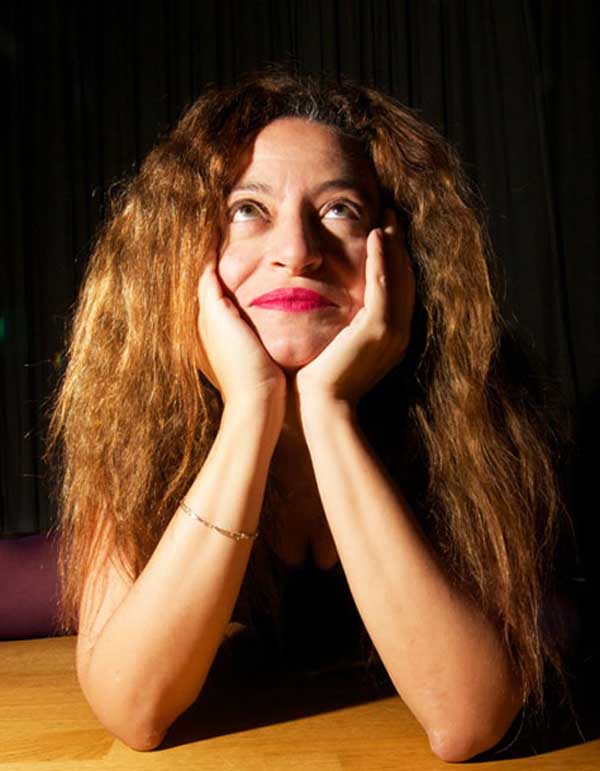
February 21, 2022
Luisa Calcumil
Luisa Calcumil is a Mapuche artist. The Mapuche are one of the ethnic people that inhabited Argentine Patagonia before the Conquista. She has worked in theatre since 1975, presenting twenty theatre performances and acting in five films of international importance and in various television programmes.
After several years of performing without finding plays where she felt represented, Luisa started to write her own scripts or participating in the creation of performances in which she was protagonist. This is how It’s Good to Look at One’s Own Shadow and Hebras were created.
It Is Good to Look at One’s Own Shadow
It is the title of a show taken from a Mapuche proverb. Reality taught Luisa Calcumil the discrimination for being a woman, indigenous and artist. Mapuche women are charged with passing on values for their oral culture. Luisa recognizes her origins and the dark colour of her skin. She puts questions to her elders, she recovers the indigenous language, history, philosophy and passes this knowledge on from village to village by means of theatre and song.
In her seventies she follows her path teaching her public to say “love, earth, dream, work” in Mapuche language. Luisa says that Aimé Painé, the first renown Mapuche singer, has had a great influence over her life. Luisa always remembers Aimé saying: “El saber quien es uno es el principio de ser culto” (knowing who you are is the first step of learning).
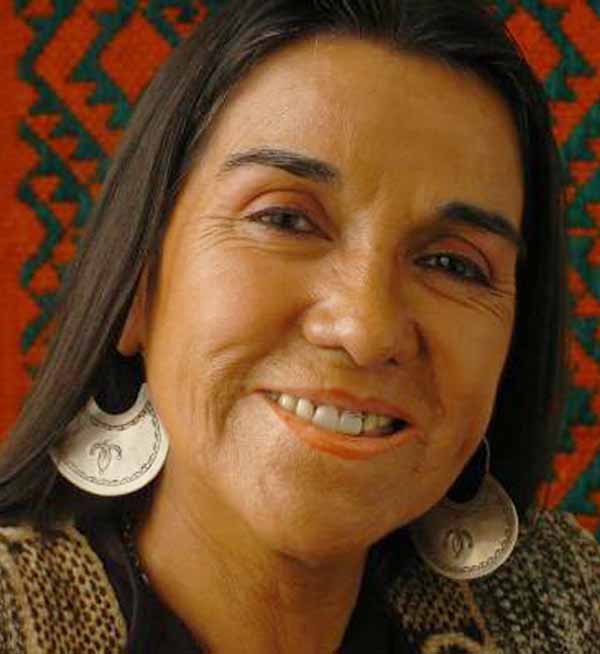
March 30, 2022
Patrick Campbell
Actor, director and professor of contemporary theatre and performance at Manchester Metropolitan University. He is a member of Cross Pollination, an open and nomadic laboratory for dialogue between theatrical practices, and is Associate Editor of the Brazilian “Journal on Presence Studies”. Patrick began doing theatre as a child in Coventry with Carran Waterfield.
Looking back
A theatre academic and practitioner has a double view of reality. Patrick Campbell has chosen to jump continuously from one vision to the other. He has made a show on his African family roots, has carried out research and written on the Third Theater and finds the practice of laboratory theater fundamental. Being particularly interested in the concept of genealogy, ‘looking back’ is also a way of finding guiding principles for his work which started as a child in a theatre group in Coventry, then developed living in Brazil and now is based at Manchester Metropolitan University.
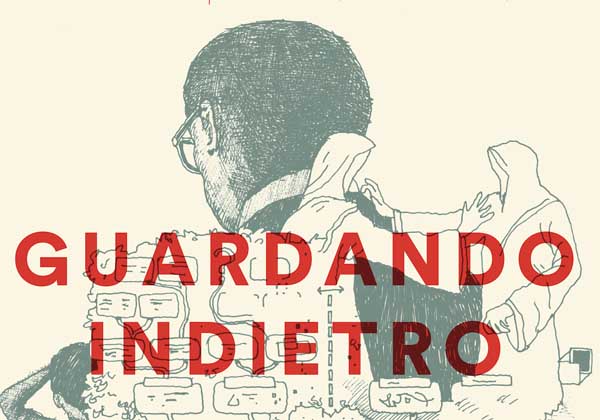
April 27, 2022
János Regős
János Regős is a playwright, director, actor and theater specialist. From 1979 to 2010 he was artistic director of Szkéné Theatre, Budapest. Besides taking care of the Theatre’s programme with his father Pál Regős, he initiated and organised the International Meetings of Moving Theatres (IMMT) for 15 years. This festival first brought several internationally acclaimed theatre groups to Hungary. In 2006 he was awarded Golden Order of Merit by the President of Hungary and in 2011 he was elected President of the Hungarian Federation of Amateur Theatres and Players, position that he still holds today.
The alternative of amateur theaters in Hungary
János Regős will speak from a historical perspective on the significance for Hungarians of amateur and independent or alternative theaters. As everywhere else, also in Hungary there are many different kinds of theatre: laboratories, free groups, children and student theatres, theatres in the capital Budapest and in the provincial towns and villages, socially committed theatres, theatres of young people in public care, rom theatres… Personal links between the amateur and professional directors and actors allow for an exchange between the different environments creating events, projects and festivals. A question for all is where the money comes from.
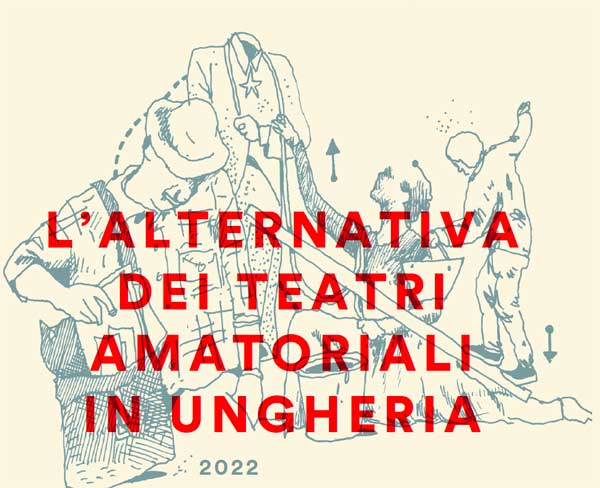
May 25, 2022
Sergio Bustric
Sergio Bini, aka Bustric, author and director, actor.
Diploma of Master of Art in Florence and Graduated from the Faculty of Letters and Philosophy
of the University of Bologna. He attended Annie Fratellini and Pierre Etaix’s circus school in Paris and Etienne Decroux’s pantomime school. Then a period of study with John Strasberg of the Actor Studio ”, he met for a short but important period Zygmunt Molic. He creates the theater company the “Compagnia Bustric” with which he writes and interprets shows that he stages using various techniques: from sleight of hand, to pantomime, to singing and acting, in a narrative rhythm that fills his stories with surprises, of funny and unexpected things. It is a theater that is “colorful and comic, at times poetic, certainly unique.” With his shows he has been largely in European countries, and in the world: in Somalia, Chile, Argentina, Brazil, Uruguay, North America, acting in Italian, English and French. During the pandemic he created “Prof. Busic’s flea circus” currently on tour.
Communication as illusionism
“Communication as illusionism”, or how to create illusions and surprises, using the rules and knowledge of the magician, for a theatrical performance. In balance between storytelling and dramaturgy and Variety theater. A walk in Bustric’s theater.
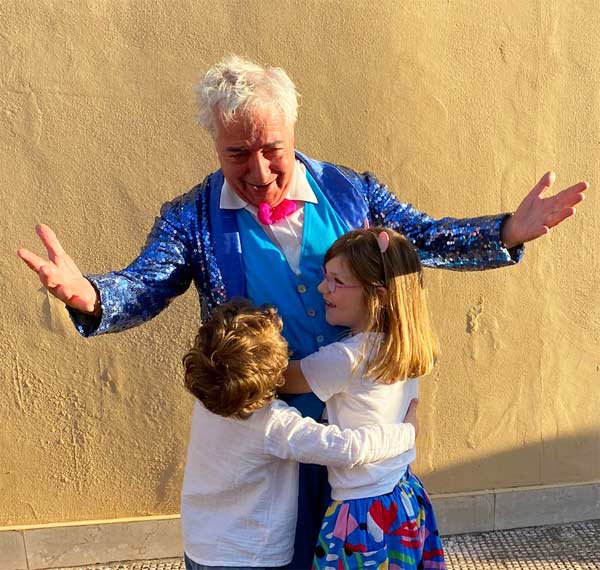
27th January 2023
Jacopo Fò
Engaged in community struggles, particularly in ecology, energy saving and social solidarity fields, Jacopo Fo is the creator and promoter of many socially committed initiatives.
He has published more than forty books including essays and novels, amongst which “Guarire ridendo”, “Gesù amava le donne e non era Biondo”, “Ecotecnologie a basso costo per tutto il mondo”. In 1981 he started the Alcatraz Free University project, a cultural reality located in the Umbrian hills which for decades has been involved in spreading a culture of peace, art and ecology.
The Nameless and Forgotten Stories…
The conversation with Jacopo Fo will revolve around the importance of remembering often not told stories as a tool for challenging the culture of power. On the recurrence of Holocaust Victim Remembrance Day, Jacopo Fo will remember the work of many “nameless” who helped change the course of history.
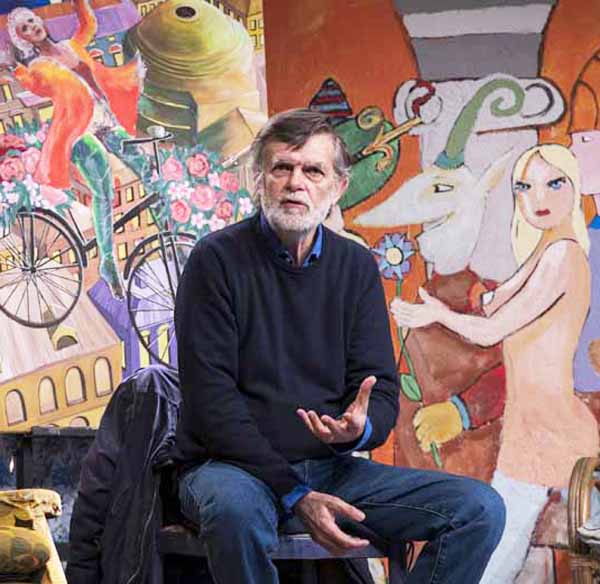
23 February 2023
Dori Ghezzi e Nando Dalla Chiesa
Black clouds, white clouds
The term “Clouds” refers to all things ephemeral: myths, consumerism, money, humble stance as well as arrogant attitude. In other words, any fleeting thing on earth, either harmless, like fashion, or dangerous and devastating, like war.
Life, nonetheless, is tactless; it ignores gimmicky endings, so all these “human clouds” go by, not causing a sensation, not leaving a trace.
Real clouds act differently: they follow their earthly sisters’ events with ironic curiosity, as, being up in the sky, and “confident on stage”, they know how to leave deep traces of their presence and journey… (Fabrizio de André).
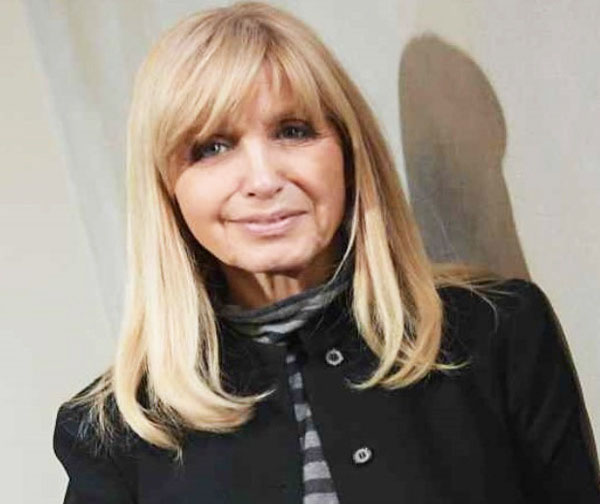
23 March 2023
Laura Peja, Marina de Juli, Mattea Fo
Standing up for the last and the nameless. Franca Rame’s social commitment. Ten years after her demise
Franca Rame said: “As a citizen and committed woman, I have spent my whole life fighting the cultural and social battle of community-led politics”. She has become a symbol for culture, thanks to her extraordinary life and numberless activities devoted to the indissoluble combination of theatre and social commitment.
The battles carried out by Franca Rame have been countless, always at the side of the last.
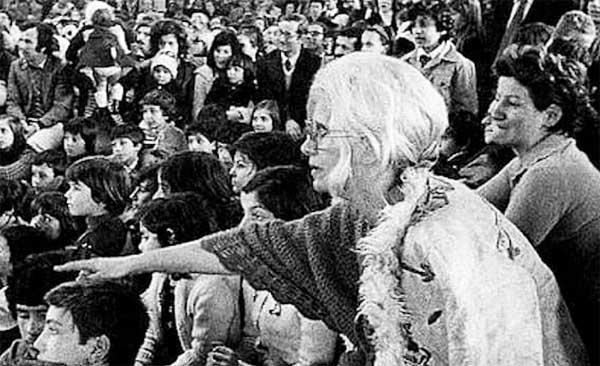
14 April 2023
Verónica Moraga
Verónica Moraga is Artistic Director of the Mestiza Festival in Chile and of the International Meeting of Women in Contemporary Performing Arts. The Mestiza Chile Festival, linked to the Magdalena Project international network, is a platform for the visibility of women’s stage work with the aim of giving an account of their contribution to the current performing arts. Verónica is a stage, television and film actress. She teaches theatre and works with children with Down syndrome.
Mestiza
Having returned to live in Chile from Spain, Verónica Moraga created Ina followed by a work demonstration explaining the creation process of the performance based on the death of her first daughter Valentina. The performance was directed by Josefina Baez. The work started during a Transit Festival in Denmark and developed during other Magdalena Project meetings. The value of international collaboration and the importance of the support of a network incited Verónica to found Mestiza in Chile, stimulating activities directed in particular to Latin-American women.
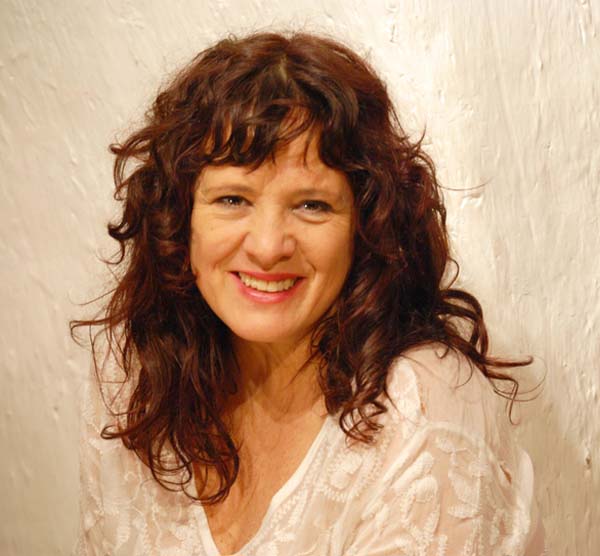
26 May 2023
Ya-Ling Peng
YA-LING PENG (Taiwan) works as actress, director and playwright. She founded Square-Round Theatre in 1981, studied acting in London with Animate Theatre and London School of Mime and Movement in 1988-1991, and joined the theatre company Tragic Carpet. In 1993, she founded the first elder’s theatre group, Modern Form Theatre Group, in the south part of Taiwan. In 1995 she founded an oral history group, Uhan Shii Theatre, in Taipei, and directed a reminiscence project, Echoes of Taiwan, interviewing old folk artists and rehearsing their life story together. Since then the group has toured in Taiwan and worldwide. Ya-Ling works with many different ethnic groups developing her own reminiscence ceremony theatre.
ORAL MEMORY
Ya-Ling Peng and Uhan Shii Theatre Group focus on oral history theatre with people from all over Taiwan. Ya-Ling Peng has travelled throughout many towns and villages to find, interview and invite ordinary people to tell their stories. Once Ya-Ling asked a woman to tell her story in her mother-tongue, the Shen-Tow dialect. She refused. It was not true she had forgotten the dialect. It took four years to do the interview. Finally, the woman told her story on stage in her mother tongue. Ya-Ling Peng searches for everyday objects to be used as metaphorical props. In the Hakka play “We Are Here”, a blue scarf represents Hakka, a migrating people who used blue scarves to wrap things in when they left a place. The dialogue will concentrate on stories of this kind. Ya-Ling Peng says that choosing and rehearsing the stories is also her own journey of self-discovery.
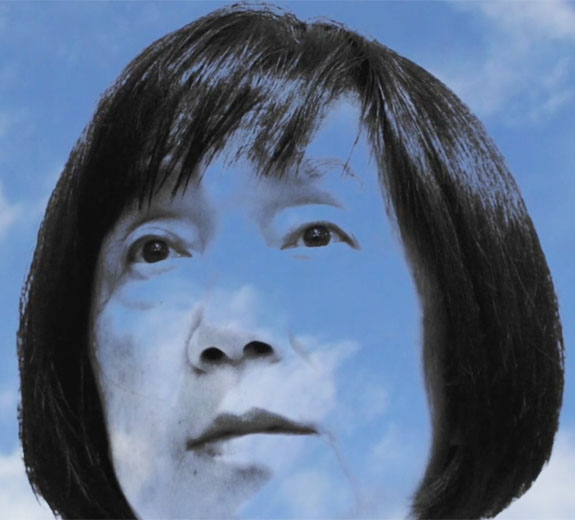
21 February 2024
Zoe Gudovic
Zoe Gudović has participated in various Magdalena Project and Transit Festivals contributing with her fighting spirit and sense of humour. Julia Varley has met her many times, and the conversation will be around Zoe’s most recent projects after moving away from Belgrade. Zoe Gudović is a lesbian artist, feminist, activist, cultural manager, producer and organizer.
Originally from Belgrade, she now lives in Vienna. Since 1995 she has researched and taken part in informal and engaged theatre forms. She merges art and activism in her practice in order to change the current social relations and awareness.
Zoe was active in several collectives, such as Women at Work, Act Women, Queer Belgrade, the music act Charming Princess, and Reconstruction Women’s Fund. Theatre educator on issues of Feminist Art in public spaces, she is also a lecturer on women’s studies at the faculty of political sciences in Belgrade, an editor and host of the radio show Ženergija, and an organiser of campaigns for the visibility of LGBTQ+, women’s human rights, and marginalised communities.
Since 2001, she has connected female artists from all over the world with Serbian activists under the name Women’s Movement – Women’s Theatre – Women’s Body. At the moment, she is working on several creative projects. Zoe Gudović has been awarded the Jelena Šantić Award for outstanding contributions to combining art and activism as well as the Feminist Achievement Award of Befem.
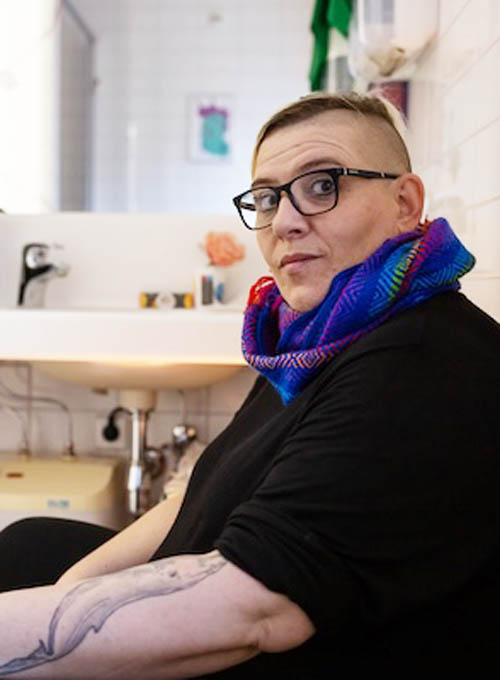
The conversations will be published by the Foundation. To receive more information, please subscribe to the Foundation’s newsletter or write to: Fondazionebarbavarley @ gmail.com

